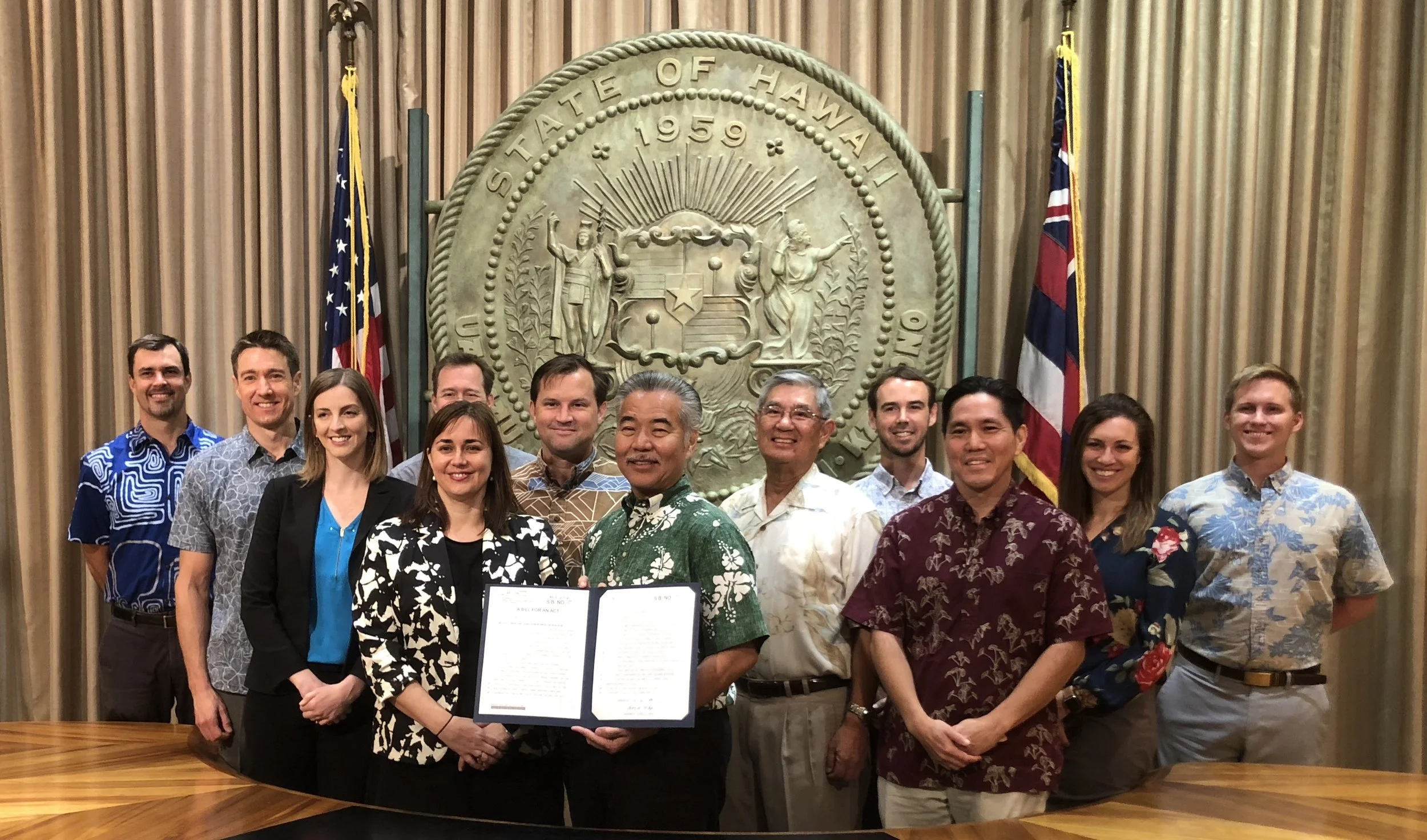Hawaiʻi passes bill to be carbon neutral by 2045
/Capturing carbon to benefit Hawaiʻi’s economy and environment






Sierra Club of Hawaiʻi staff and volunteers join state lawmakers, business leaders, farmers, and community advocates to support new commitment to make Hawaiʻi carbon neutral by 2045. Photo Credit: Sierra Club
In Honolulu today lawmakers, business innovators, and community advocates celebrated the passage of H.B. 2182, which sets the goal of “sequestering more atmospheric carbon and greenhouse gases than the State produces as quickly as practicable, but no later than 2045.”
“We are excited for the passage of this bill because it demonstrates that combating climate change and protecting Hawaiʻi’s environment promotes Hawaiʻi’s economy and protects Hawaiʻi’s taxpayers,” said Marti Townsend, Director for the Sierra Club of Hawaiʻi.
For Hawaiʻi, the ravages of climate change are not theoretical or distant. Right now, families on the north shore of Kauaʻi are rebuilding their communities after historical flooding washed away homes and severed the only road to the rest of the island. A recent state study estimates that sea level rise will cause $19 billion dollars in damage to private property in Hawaiʻi. While this number is astronomical, it is merely a beginning estimate, for it only counts the loss to private businesses and personal property, not critical public infrastructure like roads, schools, and utilities that are also at immense risk. Converting to a carbon-neutral economy reduces these risks while securing local employment.
“Despite the frightening challenge we confront in climate change, I have hope for our future because lawmakers, innovators, business leaders, and community advocates are working across differences to find a common path to a truly sustainable Hawaiʻi,” Townsend added.
“Hawaiʻi is mastering its own destiny for the benefit of our children by doubling down on its commitment to a truly sustainable, clean energy economy that minimizes the financial losses to residents, protects taxpayer investments in critical infrastructure, and rewards environmental stewardship,” she said.
This bill appropriates funds for the “Greenhouse Gas Sequestration Task Force” to set benchmarks and identify techniques for Hawaiʻi to capture more carbon than it emits. Techniques to be assessed include funding, financial incentives, and technical expertise to promote agricultural and aquacultural practices that capture greenhouse gases, expand the urban tree canopy, parks, greenways, and wetlands, and promote the generation and use of compost.
Passage of this bill means Hawaiʻi is continuing to do everything possible to ensure our environment is cleaner and safer for our children, our local residents have reliable, well-paying jobs, and our tax dollars are well-invested.







